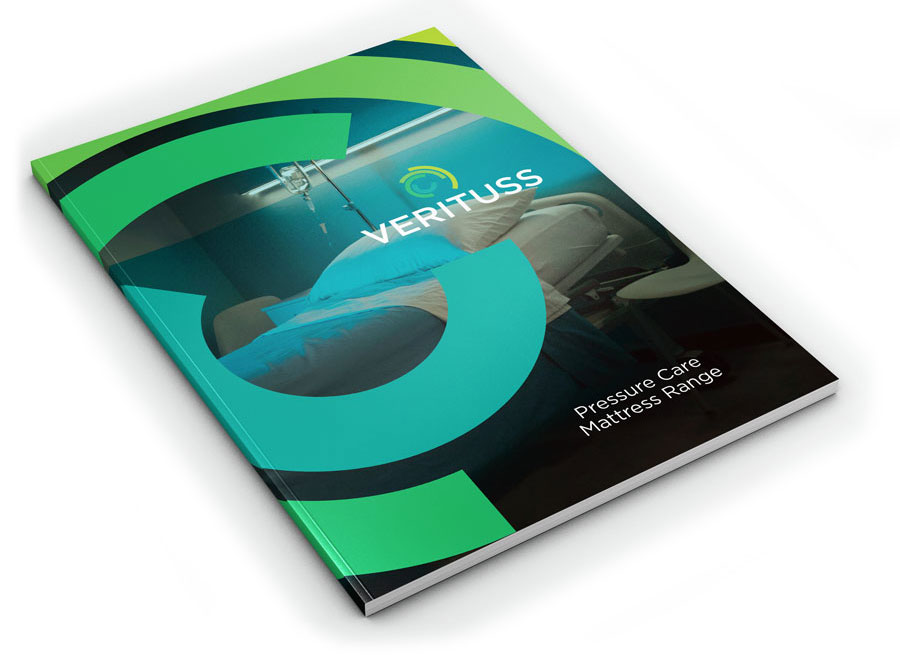Specialist Healthcare Mattress – Cutting The Costs Of Care
Published 11th September 2023
Preventing pressure ulcers in bed-bound patients is a huge challenge for nursing staff in both hospital settings and care homes. Pressure ulcers affect almost 7million patients every year, leaving them in pain and struggling to get comfortable or to get the sleep they need to aid their recovery.
Unfortunately, in today’s litigious culture, pressure ulcers are also a significant financial burden on the NHS, costing millions of pounds every day. So what are pressure ulcers, what are they costing the NHS and how can they be prevented using a specialist healthcare mattress from Redwood?
What are pressure ulcers?
Pressure ulcers, commonly known as bed sores, happen when a patient is immobile in bed. This puts pressure on certain points where the skin is thinnest and nearest to the bone, such as at the ankles. This pressure starves the area of blood and therefore oxygen, and the skin quickly starts to break down and form an ulcer.
Pressure ulcers are more common in people over 75, due to their thinner skin, although other patients are also vulnerable. These include disabled patients, patients with urinary or faecal incontinence and the terminally ill. It’s estimated that 20% to 30% of patients immobilised with a spinal injury will develop pressure ulcers in the first five years.
What is the cost of pressure ulcers?
Pressure ulcers and their treatment are responsible for 4% of the overall NHS budget every year. It’s estimated that they cost somewhere between £1.4bn and £2.2bn annually, that’s £3.8million to £6million per day. These costs come in a variety of forms, including extra care and litigation costs.
Pressure ulcer management requires significant staff time. Up to four nurses are needed to turn some patients, and that turning is required every two hours. What’s more, pressure ulcers will extend the length of the patient’s hospital stay by between four and ten days, with older patients needing longer stays. The cost of treating each pressure ulcer ranges from just over £1,000 to well over £10,000 depending on the severity. Scale this up by the 7million pressure ulcer cases every year and it’s easy to see the direct cost of care.
Sadly, direct care costs are not the only financial burden. Pressure ulcer litigation is also a major cost to the NHS. With an average pay out of £37,000, the NHS pays out over £200,000 every week in pressure ulcer compensation, totalling over £10million every year. A further £10m is also paid out in legal costs to deal with these claims.
Avoiding pressure ulcers
One source estimates that 90% of the cost of pressure ulcer treatment is staff costs, with just 10% spent on treatment and equipment. However, if more investment was made in the specialist healthcare mattress, there would be far less need for staff to deal with the condition and less compensation claims arising.
Redwood are specialists in the design and manufacturing of pressure relief mattresses. We offer a complete range of healthcare mattresses, ranging from passive models with bespoke pressure zones designed to alleviate pressure risks, through to the dynamic healthcare mattress, which automatically move the patient in bed reducing the time and staff needed for turning.
Naturally, all Redwood healthcare mattresses meet the very highest standards for infection control, water resistance and more. Each product is also specifically designed to meet or exceed the statutory specifications of the healthcare system it will be used in.
Under pressure?
With an aging population in the UK, pressure ulcers are a growing problem across the healthcare sector. The issue is putting pressure on staff, on budgets, and of course, on patients themselves.
Redwood can help to ease that pressure by preventing pressure sores from forming, and by effectively managing those that do. If you’d like to cut your litigation costs, free up your staff and make your patients more comfortable, talk to our expert team today. You’ll find there’s no pressure sell, just professional collaboration and cooperation to find the most medically efficient and cost-effective solution for your CCG, care home or clinic.

